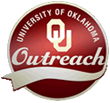A Guide to Assessment in Early Childhood
This guide prepared by Washington's Office of the Superintendent of Public Instruction discusses assessment of early learners from infant to eight years of age. As noted in its introduction, "The information provided in this guide is designed to be universally applicable in programs that serve young children with and without special needs, including English language learners, youngsters with economic and developmental risk factors, and those developing typically from birth to eight years of age." Though intended for Washington state educators, educators of early learners in other states may find its content useful.
Early Childhood Assessment Why, What, and How
This link to the National Academies Press (NAP) provides access to the NAP book Early Childhood Assessment Why, What, and How. At the website, individual sections of the book can be accessed for reading or perusing. As noted in the book's summary, this publication is the output of the "National Research Council's (NRC) congressionally requested study of developmental outcomes and appropriate assessment of young children."
Early Childhood Assessment for Children From Birth to Age 8
This document prepared by Pennsylvania's Early Learning Standards Task Force provide guidance to early childhood programs and school districts for the alignment of assessment and curriculum to the Pennsylvania standards for learning for children birth to age 8. Though intended for Pennsylvania educators of early learners, its general content may be useful to educators of early learners in other states. As noted in the report's introduction, "the focus of this report's guidelines is on the process of assessment for the purpose of informing teaching."
Formative Assessment: Not Just Another Test
This WestEd article explains how formative assessment is a process to help teachers understand their students learning progress.
Moving Forward With Kindergarten Readiness Assessment Efforts
This link to the Council of Chief State School Officers position paper on Kindergarten readiness assessment explains its position on the assessment of young children at the start of formal schooling. The paper presents principles that Kindergarten readiness assessment should adhere to and the rationale for such assessment, along with cautions for teachers, administrators, parents, and policymakers to consider when addressing Kindergarten readiness assessment.
